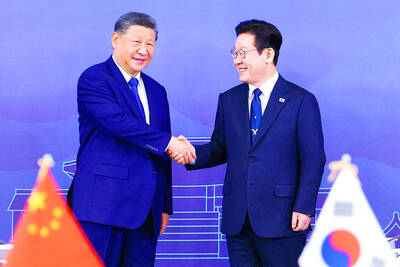Almost a fifth of all ill health in poor countries and millions of deaths can be attributed to environmental factors, including climate change and pollution, according to a report from the World Bank.
Unsafe water, poor sanitation and hygiene as well as indoor and outdoor air pollution are all said to be killing people and preventing economic development. In addition, says the bank, increasing soil pollution, pesticides, hazardous waste and chemicals in food are significantly affecting health and economies.
More controversially, the report, released on Wednesday in New York, links cancers to environmental conditions and says global warming has a major impact on health.
"For almost all forms of cancer, the risk of contracting this disease can be reduced if physical environments are safe for human habitation and food items are safe for consumption," says the report.
It also cites the spread of malaria and dengue fever as climate change intensifies. Global warming, says the report, is leading to lower yields of some crops and the salination of coastal areas.
"In 2000 more than 150,000 premature deaths were attributed to various climate change impacts, according to the World Health Organization," it says.
While tobacco, alcohol and unsafe sex are still the most likely threats to health in developing countries, rapid urbanization and the spread of slum conditions are now major hazards, says the report.
"Some 1.1 billion people lack access to safe water and 2.6 billion lack access to safe sanitation. [This leads to] about four billion cases of diarrhea a year, which cause 1.8 million deaths a year, mostly among children under five," it says.
Sanitation, says the bank, which is committed to increasing spending on the environment, is very much "a forgotten problem," with spending on improvements estimated at just US$1 billion in 2000 -- less than 10 percent of that spent on water.
Millions of people who have moved to cities to find work have swapped indoor for outdoor air pollution, suggests the report. Urban air pollution is estimated to cause about 800,000 premature deaths, it says, approaching the number of people affected by indoor air pollution in poorly ventilated homes in rural areas.

‘CHILD PORNOGRAPHY’: The doll on Shein’s Web site measure about 80cm in height, and it was holding a teddy bear in a photo published by a daily newspaper France’s anti-fraud unit on Saturday said it had reported Asian e-commerce giant Shein (希音) for selling what it described as “sex dolls with a childlike appearance.” The French Directorate General for Competition, Consumer Affairs and Fraud Control (DGCCRF) said in a statement that the “description and categorization” of the items on Shein’s Web site “make it difficult to doubt the child pornography nature of the content.” Shortly after the statement, Shein announced that the dolls in question had been withdrawn from its platform and that it had launched an internal inquiry. On its Web site, Le Parisien daily published a

China’s Shenzhou-20 crewed spacecraft has delayed its return mission to Earth after the vessel was possibly hit by tiny bits of space debris, the country’s human spaceflight agency said yesterday, an unusual situation that could disrupt the operation of the country’s space station Tiangong. An impact analysis and risk assessment are underway, the China Manned Space Agency (CMSA) said in a statement, without providing a new schedule for the return mission, which was originally set to land in northern China yesterday. The delay highlights the danger to space travel posed by increasing amounts of debris, such as discarded launch vehicles or vessel

RUBBER STAMP? The latest legislative session was the most productive in the number of bills passed, but critics attributed it to a lack of dissenting voices On their last day at work, Hong Kong’s lawmakers — the first batch chosen under Beijing’s mantra of “patriots administering Hong Kong” — posed for group pictures, celebrating a job well done after four years of opposition-free politics. However, despite their smiles, about one-third of the Legislative Council will not seek another term in next month’s election, with the self-described non-establishment figure Tik Chi-yuen (狄志遠) being among those bowing out. “It used to be that [the legislature] had the benefit of free expression... Now it is more uniform. There are multiple voices, but they are not diverse enough,” Tik said, comparing it

RELATIONS: Cultural spats, such as China’s claims over the origins of kimchi, have soured public opinion in South Korea against Beijing over the past few years Chinese President Xi Jinping (習近平) yesterday met South Korean counterpart Lee Jae-myung, after taking center stage at an Asian summit in the wake of US President Donald Trump’s departure. The talks on the sidelines of the APEC gathering came the final day of Xi’s first trip to South Korea in more than a decade, and a day after his meeting with the Canadian prime minister that was a reset of the nations’ damaged ties. Trump had flown to South Korea for the summit, but promptly jetted home on Thursday after sealing a trade war pause with Xi, with the two